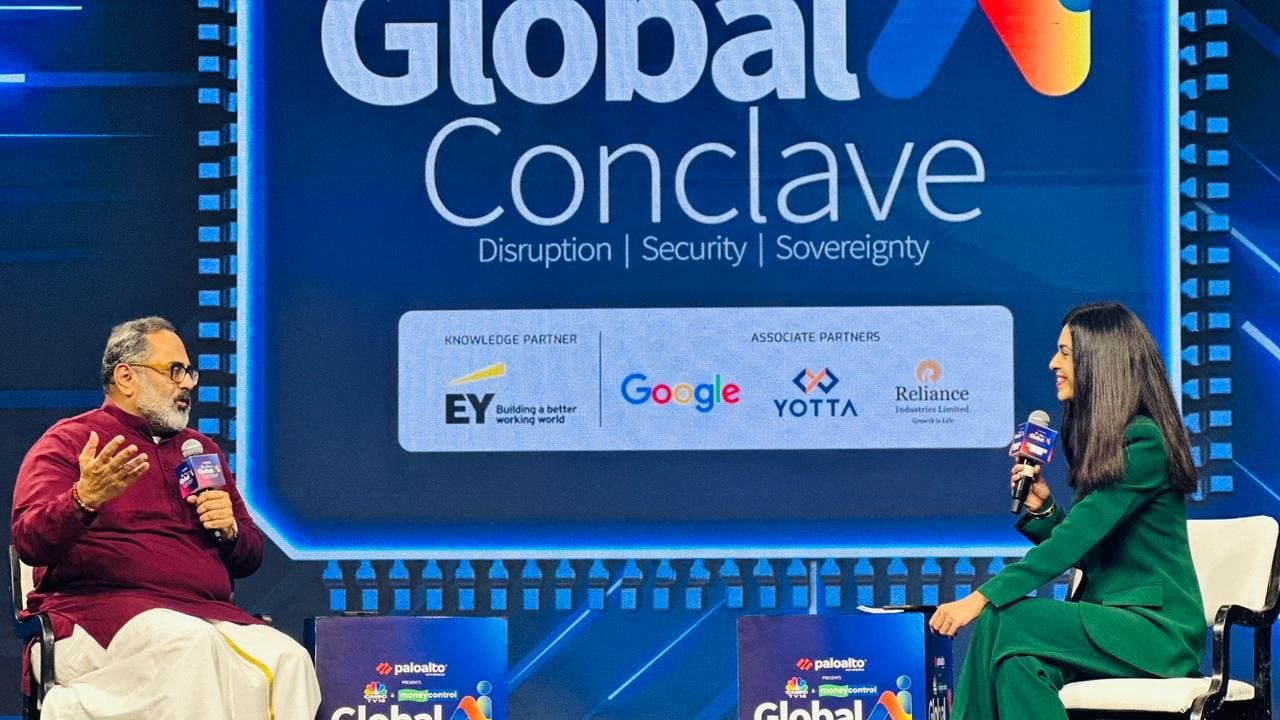Fifteen years ago you measured academic institutions by how many students got hired by Google or went abroad. Now it is about what kind of platforms the students of a particular institution are building for the world, said Rajeev Chandrasekhar, the Minister of State for Electronics and Information Technology said at the CNBC-TV18 and Moneycontrol Global AI Conclave.
Stressing on the criticality of the talent pool to take India forward in the digital and technology race, Chandrasekhar noted that technological talent, and not chip-led compute power, is a fundamental challenge that needs to be solved to propel India’s progress in artificial intelligence (AI).
“Talent is a much more fundamental challenge in AI. We need universities to churn out masters and PhDs in AI. Talent is something that keeps me awake at night. The infrastructure pieces will get solved very quickly,” he added.
Read More: Rajeev Chandrasekhar, MoS IT, cautions against creating a narrative that demonises AI
Chandrasekhar said the issue of the shortage of chips that is making global powers scramble for AI computer power will soon be resolved.
The minister also highlighted the government’s 24/7 efforts to build the infrastructure needed for emerging technologies like AI to propel India’s tech economy to a trillion dollars by 2026.
He called artificial intelligence the “greatest invention of our time”, while calling for a global framework that regulates AI without demonising it.
AI regulations are top on the agenda for the many global economies. Chandrasekhar emphasised the need of a rules-based global framework to address the threats posed by deepfakes and other forms of harm to users.
Last week, the New Delhi Declaration of the Global Partnership on Artificial Intelligence (GPAI), unanimously adopted by 28 countries, laid special emphasis on the risks of AI, particularly in relation to misinformation, disinformation, personal data, and threats to human rights and democracy.
This came after Prime Minister Narendra Modi, while urging countries to work together on a global framework for AI, pointed out that the technology has the power to make or break democracies.
On December 8, Europe reached a provisional agreement on landmark European Union rules governing the use of artificial intelligence (AI), making the Artificial Intelligence Act the world’s first comprehensive regulations for AI, setting the stage for legal supervision of AI technologies. The landmark political agreement makes the EU the first major world power to enact laws governing AI.
